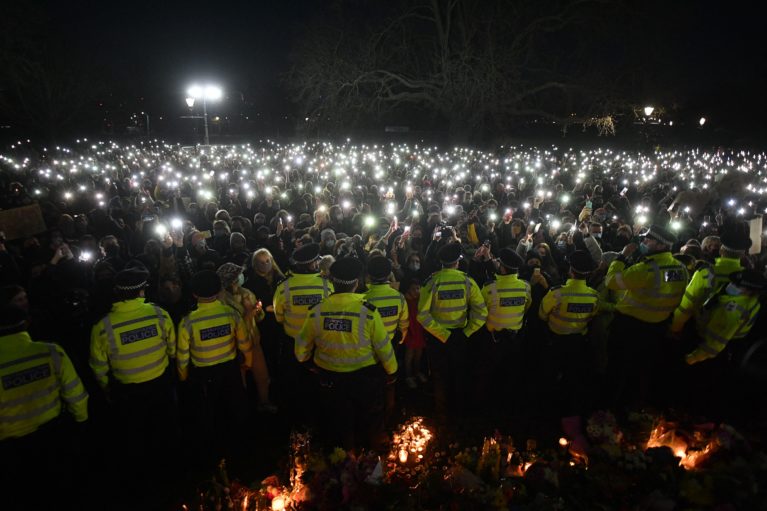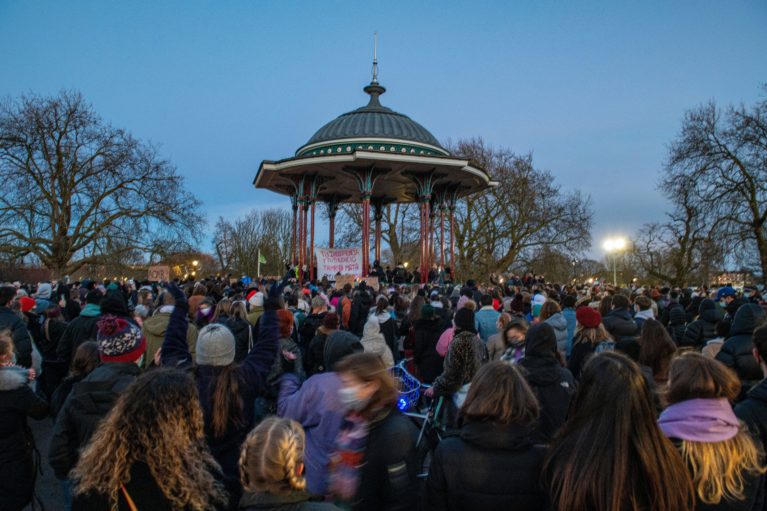Hostile environment / Women's rights
New domestic abuse laws cannot become a missed opportunity
Posted by Zehrah Hasan on 26 Oct 2018
The Government intends to publish a Domestic Violence and Abuse Bill to tackle these crimes and properly support anyone who has suffered because of them. But a number of its proposals must go further.
Domestic abuse remains one of the most prevalent and devastating crimes in the UK.
Nearly 2 million people in England and Wales were victims of domestic abuse in the year ending March 2017. Two women are killed by their partner or ex-partner every week.
The Government intends to publish a Domestic Violence and Abuse Bill to tackle these crimes and properly support anyone who has suffered because of them.
And this week, the Home Affairs Select Committee published its report identifying issues to be addressed when a draft law emerges.
Liberty welcomes many of the Committee’s recommendations – including its finding that Government welfare reforms make it more difficult for victims to escape economic abuse, proposals to strengthen the new Domestic Abuse Commissioner and robust calls to stop police forces sharing victims’ details with Immigration Enforcement.
But a number could – and should – go further.
Safe reporting mechanisms
Although the Committee expresses serious concern about shocking revelations that over half of police forces in Britain hand over victims of crime to the Home Office, it does not suggest a solution.
At Liberty we believe that under the Government’s hostile environment, public servants in our health and social services, schools and housing authorities have been transformed – often against their will – into border guards, charged with passing on information for immigration enforcement purposes. So migrants fear reporting abuse because it often results in their own detention or deportation.
This was not raised in the Committee’s report, but it should have been.
And the solution is clear – Liberty, Step Up Migrant Women and others are calling for an impenetrable firewall between public services and immigration control. Statutory agencies must protect victims at their point of need.
Improving responses by public services
The Committee highlights the inadequacies of police responses to domestic abuse – including under-recording of incidents, failures to recognise abuse, dismissive attitudes and inconsistent approaches.
But we believe all public services have work to do – including social services, healthcare providers and housing authorities.
Statutory agencies must be compelled to follow necessary guidance when assisting victims, and comply with their legal duty under the Equality Act to consider victims’ rights when making decisions on domestic abuse cases.
And only by ending all hostile environment measures will migrant survivors also receive the safety, security and support they need.
Refuges and safe accommodation
We welcome the Committee’s acknowledgement that there is a “desperate shortage of refuge accommodation” – research by Women’s Aid has shown that 60 per cent of referrals are routinely turned away.
We have repeatedly highlighted that services for survivors of abuse are at crisis point – particularly noting the discriminatory impact on survivors with insecure immigration status. ‘No Recourse to Public Funds’ (NRPF) means no access to a refuge. And it means a two-tier system of safety.
Disappointingly, the Committee only recommends ‘reviews’ of these services.
The Government must increase funding for safe accommodation and abolish the NRPF rule – so no victim of abuse is turned away.
Access to justice
The Committee describes legal proceedings as “traumatising and harrowing” – not least because alleged perpetrators can cross-examine victims in family courts.
The report recommends this practice end immediately, and victims’ access to and experiences of the criminal, civil and family justice systems are improved.
But it overlooks the impact of legal aid cuts. Survivors of abuse find it extremely difficult to obtain legal aid – particularly those with insecure immigration status – due to stringent means-testing and excessive evidential burdens.
The Ministry of Justice must make sure our courts are fair, open and accessible for all survivors of domestic abuse.
Each of these changes must be made. The new law cannot be a missed opportunity.
I'm looking for advice on this
Did you know Liberty offers free human rights legal advice?
What are my rights on this?
Find out more about your rights and how the Human Rights Act protects them
Did you find this content useful?
Help us make our content even better by letting us know whether you found this page useful or not



